Definition
An individual with anorexia nervosa has an intense fear of gaining weight even when they are underweight. Hence, they eat very less quantity of food. As they are lacking with enough nutrients, their body becomes starved and their body shape gets distorted. They sometimes insist on others that they are stout or some body parts are too large. Since AN effects both physically and psychologically, AN person will say that they are healthy, despite being in low weight. But their family, friends, and neighbors know their friend is dangerously underweight.
It usually affects the teenage people more commonly in the girls than the men. Untreated AN can lead to serious health effects like starvation, kidney problems, osteoporosis, and heart problems. Some may die in severe AN cases. Anorexia nervosa develops during the age of puberty.
Types of Anorexia nervosa
There are two types of anorexia;
- Restricting type
An individual with this type of anorexia nervosa does severe restrictions and hesitation in the quantity of food. These may include, skipping meals, counting the calories and following a very poor diet. Their behaviors may be expressed as often doing exercise.
- Binge eating or purging type
People with this type have the same restrictions on the food they consume but in a different way. Usually, these individuals eat an enormous amount of food they need. But after finishing their meals or breakfast they compensate for the food they consumed by purging out the food through vomiting or using the laxative, enema, and diuretics.
Causes
- The exact cause of anorexia nervosa has still remained unknown, but a few kinds of research say that this is a cause of psychological impairment.
- Environmental factors and social factors may contribute to the development of AN.
- Most of the AN people were presenting to be a perfectionist and overachievers. The typical anorexic person is a good student involved in school and community activities.
- Sometimes sexual abuse may also cause AN.
- Typical persons who are actively participated in school and community activities.
Risk factors
- Self-oriented perfectionism, which involves setting unrealistically high expectations.
- Weight-based teasing or bullying
- People who need rapid westernization is a major risk factor for developing AN.
- Loneliness and isolation may put them at a risk of thinking about their structure and body image.
- Negative energy balance. Burning off more calories than you take in leads to a state of negative energy balance.
- Gender plays an important role, especially in females.
- Having family persons with similar issues.
History
The first report of AN was dated from 12th and 13th in the western countries. Most famously Saint Catherine of Siena, who restrict herself food as a part of a spiritual denial of self. In the early 20th century anorexia was considered as an endocrine disorder and was treated with pituitary hormones.
Epidemiology of Anorexia Nervosa
One national comorbidity survey of several thousands of US households found a lifetime prevalence estimated that AN to be 0.9% for females and 0.3% for males. It was estimated that 3 in 10 patients are male, but many males do not present for treatment, thus, about 90% of patients diagnosed were female. Some reports have stated cases of anorexia among preadolescent boys to be quite high at a ratio of boys to girls of 1:4.
Symptoms
The main symptoms of anorexia nervosa are losing a lot of weight, the behavior may obsessive and compulsive and other symptoms include:
- Refusal to eat
- Cooking many foods for other but refused to eat
- Eating selected foods which are considered low in fat and calories
- Making excuses for not eating
- Skipping meals
- Changes in body shape and size
- Denial of hunger even in starving
- Avoiding foods by cutting tiny foods and spitting food out after chewing
- Weighing food to eat
- Difficulty in concentrating
- Believing you are fat when you are a healthy weight or underweight
The other physiological symptoms such as
- Feeling cold, tired and dizzy
- Irregular menstrual cycle in younger girls and women’s
- Poor circulation in hands and feet
- Hair loss, dry skin or fine down hairy growing on the body
- Reduced sex drive
- Social withdrawal/avoidance of social situations involving food
Physical symptoms
Complications of Anorexia Nervosa
Complication of anorexia nervosa is most severing and sometimes it may lead to sudden fetal death. Other complications such as follows:
- Absence of periods in female
- Decreased testosterone in male
- Kidney problems
- Suicide
- Bone weight loss and increased risk of fracture in bone
- Heart problems such as abnormal rhythms, heart failure, and mitral valve prolapse
- Gastrointestinal problems, such as constipation, bloating or nausea
- Electrolyte abnormalities, such as low blood potassium, sodium, and chloride
If the person is severely malnourished, every organ may get damaged and it cannot be reversible even anorexia is under controlled. People with anorexia also commonly have other mental disorders as well. They may include:
- Depression, anxiety and other mood disorders
- Personality disorders
- Obsessive-compulsive disorders
- Alcohol and substance misuse
Diagnosis and test
The early diagnosis of anorexia nervosa improves the condition much better and the chance of good outcome. The full medical history helps to diagnose the anorexia nervosa.
The physician asks about the weight loss, how they feel about their weight and about menstrual cycle for women’s. For the person who is obese is not easy to confirm a diagnosis. Some of the exams and tests are as follows:
Lab tests: the blood tests can be carried out to find the complete blood count test and more specialized blood tests to check the function of liver, erythrocytes, and proteins as well as kidney and thyroid. Sometimes urine analysis can also be done.
Psychological evaluation: Your mental health doctor may ask about your eating habits, thought, and feelings. Also, be asked to complete the psychological self-assessment questionnaire.
Physical exam: This included the examination of your weight loss, and to measure your height, blood pressure, heart rate and temperature.
Other studies: Bone density can be check by using X-ray, to check the broken bones and fractures and also to check the heart problems or pneumonia. ECG may also do to find the abnormalities in the heart. The energy uses the body can also be checked by a test, which helps in planning nutritional requirements.
Treatment
The treatment team has doctors, dietitians and therapists are required for the eating disorders. There are three necessary components of treatments involves are as follows:
Nutritional: In this treatment involves the addressing of diet maintenance, weight restoration, implementation and supervision of a tailored meal plan, and education about normal eating patterns.
Medical: The highest priority in the treatment of anorexia nervosa is addressing any serious health issues that may have resulted from malnutrition, such as an unstable heartbeat.
Therapy: The goal of this part of treatment is to recognize underlying issues associated with the eating disorder, address and heal from traumatic life events, learn healthier coping skills and further develop the capacity to express and deal with emotions.
Prevention of Anorexia Nervosa
There is no known way to prevent anorexia nervosa. Early treatment may be the best way to prevent the disorder from progressing. Knowing the early signs and seeking treatment right away can help prevent complications of anorexia.
 Diseases Treatments Dictionary This is complete solution to read all diseases treatments Which covers Prevention, Causes, Symptoms, Medical Terms, Drugs, Prescription, Natural Remedies with cures and Treatments. Most of the common diseases were listed in names, split with categories.
Diseases Treatments Dictionary This is complete solution to read all diseases treatments Which covers Prevention, Causes, Symptoms, Medical Terms, Drugs, Prescription, Natural Remedies with cures and Treatments. Most of the common diseases were listed in names, split with categories.
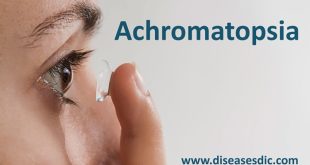
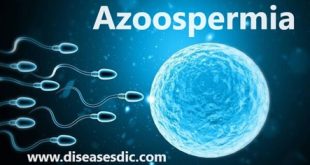
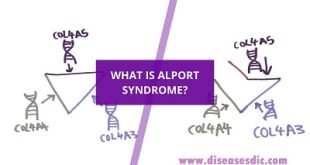
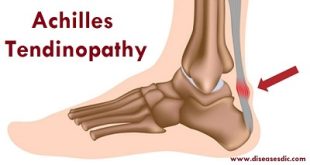
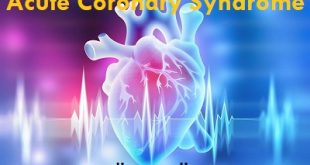

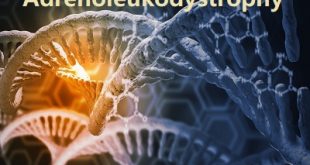

pharmacological management of the disease is not give (medication)
Sure, we will shortly update your request in the post.
I read this anorexia symptom now,I want to know that is my body is become thin day by day cannot eat properly and my skin also very dry i think this will anorexia.so, how can i treatment to whom please kindly some way. but my family very poor please
I kindly tell me to treatment for better understanding
Please take enough natural foods that are rich in nutrients.
what other kinds of eating disorders are there? I have a 14 year old daughter that has something going on that food don’t taste good to her. can you help me please??
we will upload other eating disorders very soon.
can do also give so information on H pylori. please
yes sure in our next post we will upload about H.pylori.
in your teatment u mentioned nutrition but i thing the topic that mentioned above is about anorexia means loss desire of eat food. xo my qn is about which nutrition u will take in order to increase appetite of eat food.
One can dring ginger flavoured tea.
how to prevent hair growing on upper lips in female???
Apply turmeric paste on the upper lip when you go to bed.
for which doctor I should apply it mean what specialty
You can contact a psychiatrist for better treatment.